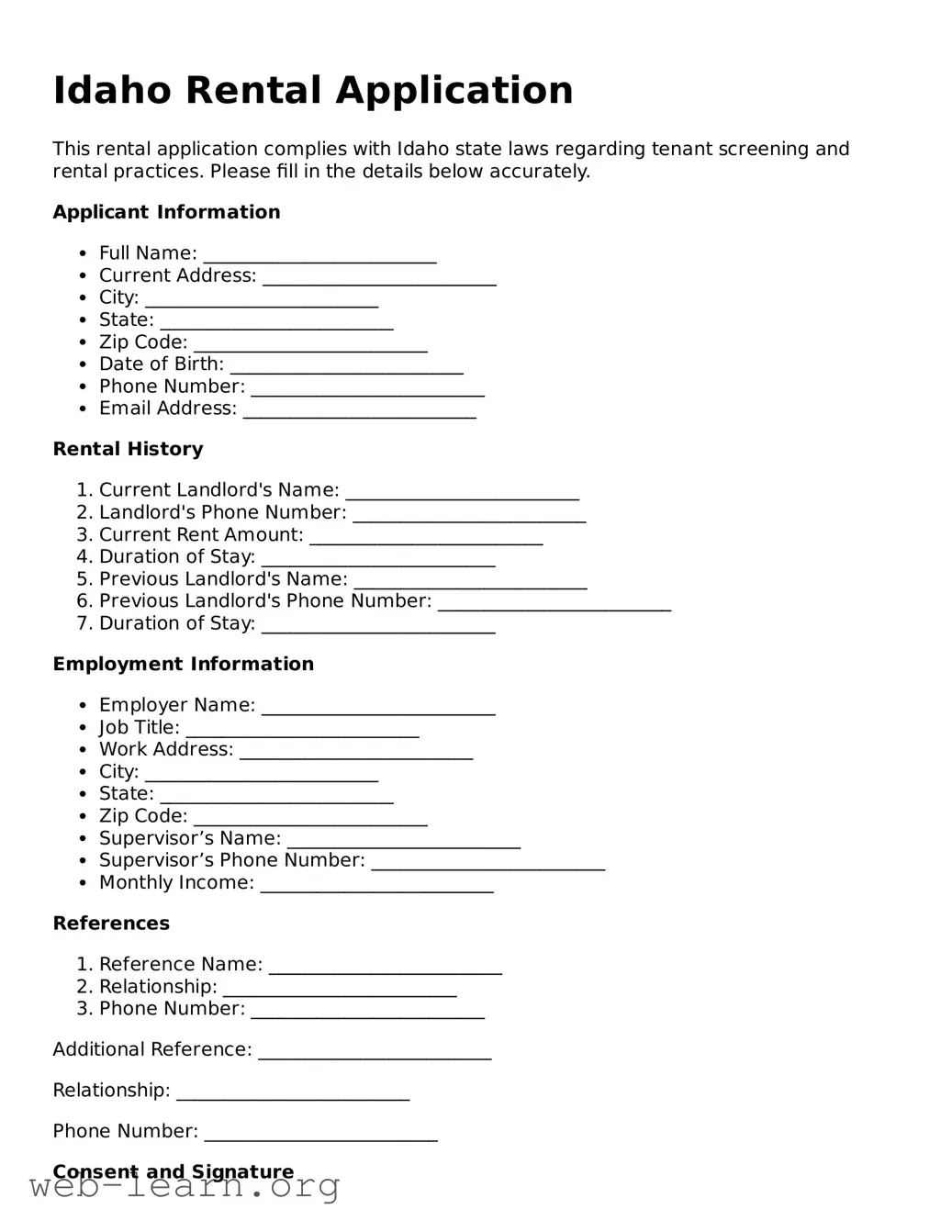Idaho Rental Application
This rental application complies with Idaho state laws regarding tenant screening and rental practices. Please fill in the details below accurately.
Applicant Information
- Full Name: _________________________
- Current Address: _________________________
- City: _________________________
- State: _________________________
- Zip Code: _________________________
- Date of Birth: _________________________
- Phone Number: _________________________
- Email Address: _________________________
Rental History
- Current Landlord's Name: _________________________
- Landlord's Phone Number: _________________________
- Current Rent Amount: _________________________
- Duration of Stay: _________________________
- Previous Landlord's Name: _________________________
- Previous Landlord's Phone Number: _________________________
- Duration of Stay: _________________________
Employment Information
- Employer Name: _________________________
- Job Title: _________________________
- Work Address: _________________________
- City: _________________________
- State: _________________________
- Zip Code: _________________________
- Supervisor’s Name: _________________________
- Supervisor’s Phone Number: _________________________
- Monthly Income: _________________________
References
- Reference Name: _________________________
- Relationship: _________________________
- Phone Number: _________________________
Additional Reference: _________________________
Relationship: _________________________
Phone Number: _________________________
Consent and Signature
I hereby authorize the verification of the information provided, including credit and background checks. I understand that providing false information may result in denial of the rental application.
Applicant Signature: _________________________
Date: _________________________
